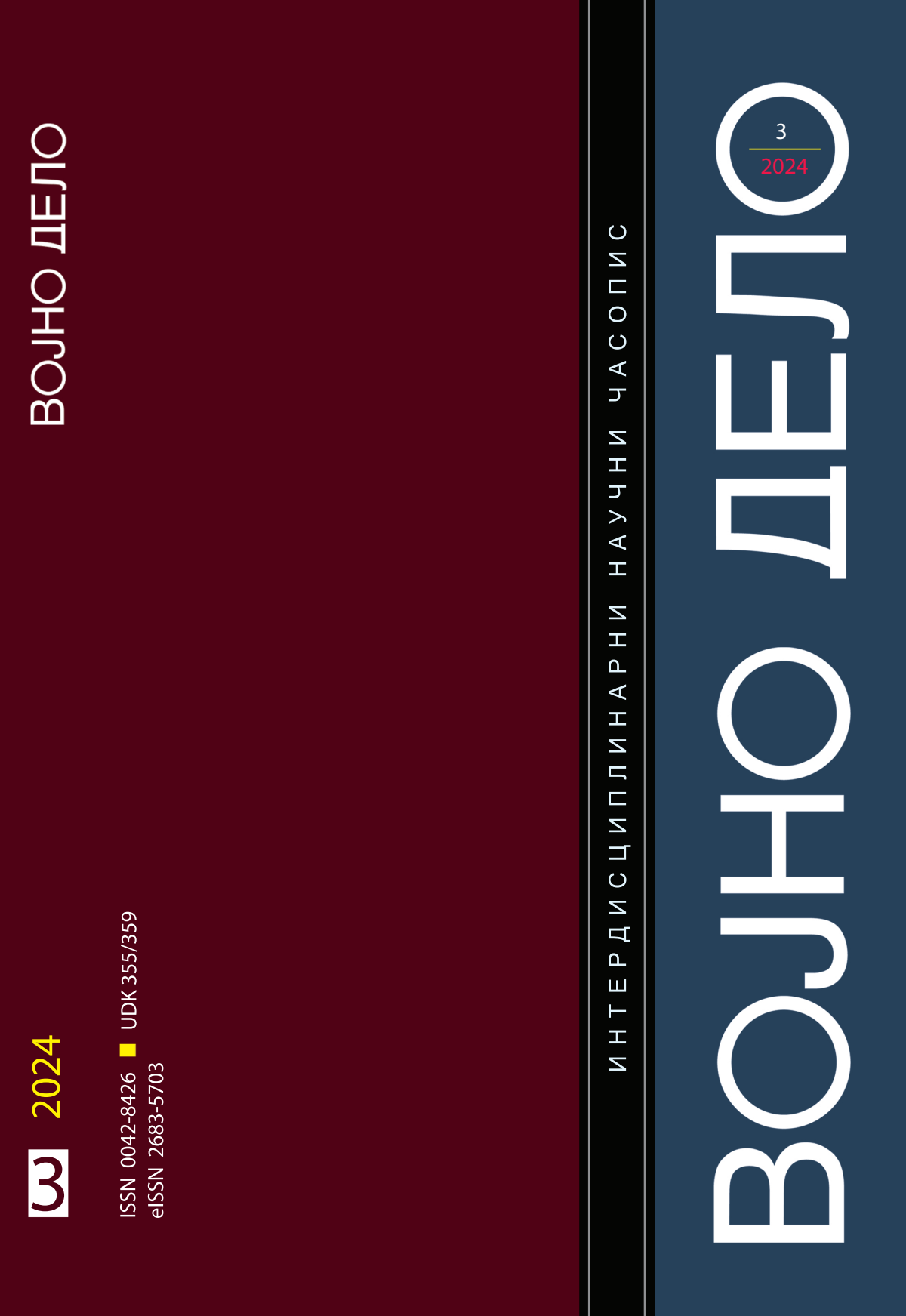КЛАУЗЕВИЦЕВА КОНЦЕПТУАЛИЗАЦИЈА РАТА КАО ОНТОЛОШКО ПОЛАЗИШТЕ У ЊЕГОВОМ ИСТРАЖИВАЊУ И РАЗУМЕВАЊУ
CLAUSEWITZ‘S CONCEPTUALIZATION OF WAR AS AN ONTOLOGICAL STARTING POINT IN ITS RESEARCH AND UNDERSTANDING
Author(s): Igor I. Barišić, Milinko S. Vračar, Ivica Lj. ĐorđevićSubject(s): Security and defense, Military policy
Published by: Institut za strategijska istraživanja
Keywords: Clausewitz; war; ontology; fight; trinity; friction; climate and fog of war
Summary/Abstract: War, as an extremely destructive and complex social phenomenon, has always been a subject of scientific interest and analysis in social and humanistic sciences, having in mind the consequences that it has for human society as a whole. The aim of this paper is to explore, based on the analysis of scientific research on war conducted so far, the fundamental problems in the study of this social phenomenon, and offer certain arguments because Clausewitz’s conceptualisation of war would make a good ontological starting point for more comprehensive and complete scientific research. Notwithstanding its undoubtedly significant social role, war has been solely partially studied by social and humanistic sciences. More precisely, certain aspects of war are considered, the causes for its outbreak and its consequences in different areas of social life, also, singular wars and armed conflicts are analysed, while there are but few works dedicated to the comprehension of its nature and essential characteristics. The reasons for such “neglect” of war are numerous and complex. One of the key reasons is its stigmatisation, as an amoral and destructive social phenomenon, whereby its role in the development of human society is often ignored and condemned. Due to the widely spread social perception of the harmfulness of war, this social phenomenon is researched partially, most often from the perspective of the interest of individual scientific disciplines, meaning that its connectedness and relations with phenomena that are a direct subject of research of a concrete science, or scientific field are observed. Because of the social stigmatisation of war and partial research of this phenomenon, war is perceived as a way too complex social phenomenon that is impossible to comprehend through the prism of one science, or scientific field, so researchers resorted to multidisciplinary examination of war. However, weaknesses of the partial research on war have not been overcome. Clausewitz’s conceptualisation of war, as a set of thoughts and ideas that reflect essential denominators of this phenomenon, represents a good ontological basis for further research. It is precisely the understanding of the nature and essence of war, its laws and principles, or manners in which the “paradoxical trinity”, “climate” of war, “fog” of war, and “friction” influence the course and outcome of an armed conflict, that represent the immeasurable contribution to the military theory and practice. Theoretical relevance and duration of Clausewitz’s ideas and positions on war are confirmed by the fact that his ideas about the nature of this social phenomenon are studied in all military organisations and institutions worldwide. Clausewitz’s theoretical ideas and thoughts about war, although written almost 150 years ago, withstood many criticisms, especially by modern theoreticians of war, which points to the timeless value and validity of Clausewitz’s ideas, regardless of certain shortcomings in terms of theoretical incoherence and vagueness, which probably occurred because of the inability of the very author to complete his capital work.
Journal: Vojno delo
- Issue Year: 2024
- Issue No: 3
- Page Range: 1-14
- Page Count: 14
- Language: Serbian

